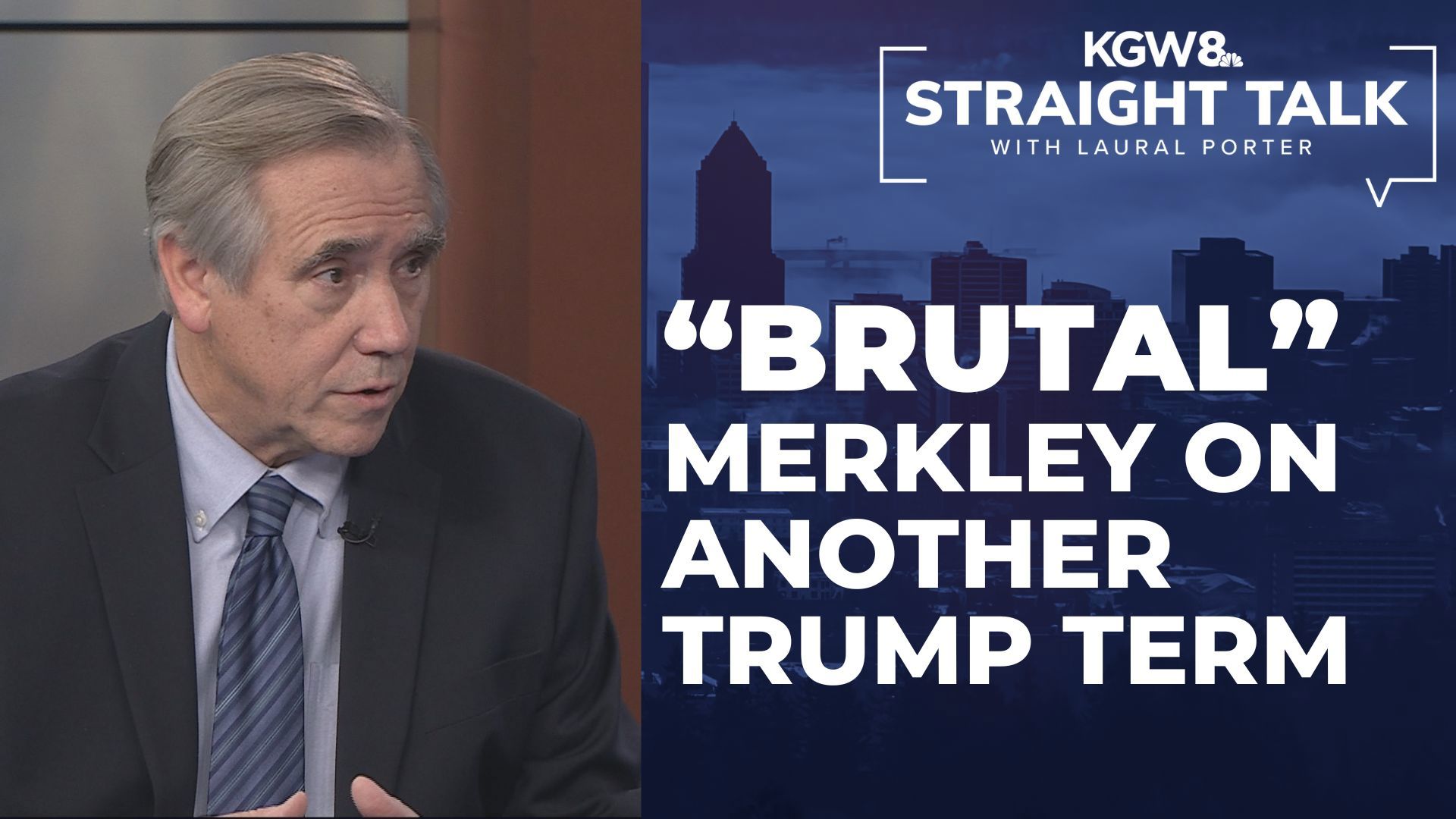PORTLAND, Ore. — When it first became clear that Donald Trump was going to win another term as president, Oregon Sen. Jeff Merkley said one word came to mind: brutal.
"It just felt like a real blow. The things that he did in his first term, I thought were bad for America, from child separation to tax breaks for the richest people, and I didn't want to see him coming back in again," he said. "But America spoke."
On a second Trump administration
Merkley said he's looking forward to working with some of the new leaders of the Trump administration, including newly elected Senate Majority Leader Republican John Thune from South Dakota.
"I really enjoy working with John. We've had a comfortable relationship," Merkley said, adding he's hoping to have a bipartisan relationship with Sen Thune.
"I'm hoping that there are really three areas that we may be able to get bipartisan support to make the Senate work better: on nominations, on the ability to offer amendments, and on the ability to get appropriation bills to the floor. So, I'll be carrying on those conversations," he continued.
Merkley also said he was glad to hear that Republican Sen. Marco Rubio was nominated for Secretary of State, although he doesn't know if he'll vote to approve the nomination.
"Marco Rubio, I've worked very closely with him on human rights issues involving Hong Kong, Taiwan and Muslims in China who are treated as basically their slave labor," Merkley said. "I'm not saying I'll vote for him yet — I want to hear about other parts of the world — but I do think he's got appropriate experience and knowledge."
Merkley is decidedly less excited about some of Trump's other cabinet picks.
"Tulsi Gabbard and Robert F. Kennedy, and certainly, Matt Gaetz most of all — terribly unsuited to those roles. Matt Gaetz is someone who was going to have a file released by the House Ethics Committee this last week that would have laid out a whole series of personal problems that he had in, in terms of inappropriate interaction with young women to potential criminal actions. By resigning from the House of Representatives one day before, he avoided that file being released, but there are senators on both sides of the aisle now saying that has to be released."
Senator Merkley also said Robert F. Kennedy Jr. has some "really crazy ideas on health" that will be discouraging to the medical community, and that he hopes someone more suitable is nominated for Secretary of Health and Human Services.
He said allowing for recess appointments would be "a huge failure to abide by the core vision and principles of our Constitution."
So what happened with the Democrats?
"Trump concentrated on immigration and inflation, and those were both issues of significant concern to Americans," Merkley said. "Meanwhile, Democrats had talked about a number of kitchen table issues but hadn't delivered — on childcare, on the rising cost of housing, on negotiating all of the drugs."
Merkley said that Democrats focused too much on issues surrounding the state of democracy, which is important, but not, he said, what constituents were coming to him concerned about: "Those are incredibly important, but that wasn't hitting people in the gut."
Instead, he said, people are more concerned about inflation, fentanyl and immigration — and that although Congress had a bipartisan immigration bill ready to pass, it died when Trump told Republicans not to vote for it during his campaign.
Merkley said Congress should have passed that bill sooner: "That was year four of the Biden administration. We needed that bill in year one."
The future of the filibuster
Republicans swept both chambers of Congress as well as the presidency, and Democrats have few weapons left to assert their positions over the next two years. One of those could be the filibuster, for which Senator Merkley has long campaigned for reform, even writing a book about it, called "Filibustered."
Merkley said he's still in favor of filibuster reform and eliminating the no-effort filibuster, in which a single Senator can object to a bill and stop debate. Merkley said he'd rather senators be present for the filibuster and debate the issues in front of the country.
"The talk filibuster I'm advocating for says if there is an issue that we think needs more debate, we have to carry on continuous debate. So instead of it being a secret, silent, no-effort veto, it means a debate between the American people," he explained.

